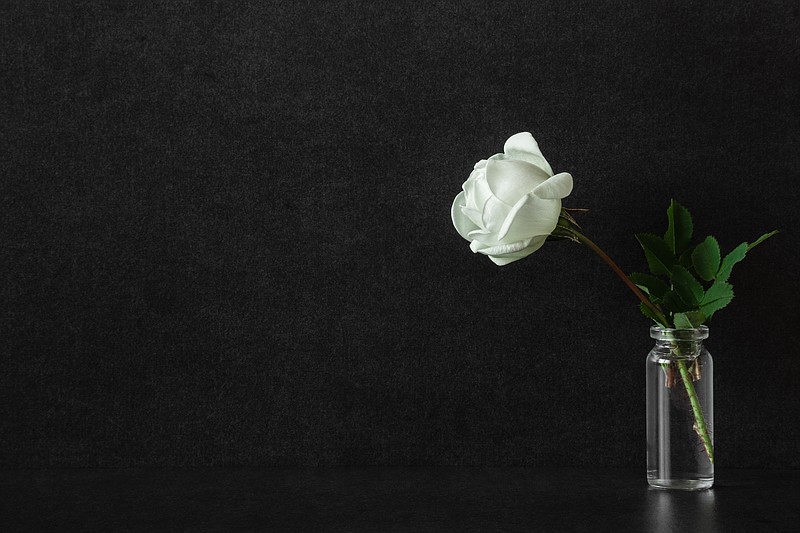Editor's note: This article is part of "Religion: Got questions?," a series answering your biggest religious questions. Each week, we will answer one submitted faith question. To send a submission visit timesfreepress.com/religionquestions or email wmassey@timesfreepress.com.
Question: What happens to us when we die?
Getting a hold of someone who has passed on is impossible or at least difficult, depending on what you believe. However, again depending on what you believe, there is an answer to what comes after death.
There are more than 4,000 religions in the world, the vast majority of which have an idea of an afterlife. On the most basic level, religion answers the fundamental question about whether there is meaning in life and what that meaning points toward.
The majority of Americans believe in heaven and hell, according to the Pew Research Center. These majorities - 72% believing in heaven and 58% believing in hell - are most heavily supported by American Christians, though 89% of Muslims believe in heaven and 76% in hell, according to the study.
Christopher Johnson, clinical professor of sociology at Texas State University and editor of "How Different Religions View Death & Afterlife," said his book shows an important line through all major religions, which is especially important to recognize at a time when people too often focus only on differences.
"Whether it be the Torah, the Christian Gospel, the Quran, the Baha'i sacred writings, the different faiths maintain human thought or good behavior leads to happiness or heaven and that evil thought or behavior lead to pain, torment or separation from God," he said.
Just what the paradise-style afterlife looks like differs. In the Christian tradition, heaven is the ultimate destination, though some denominations see it as a literal heaven and others view it as a symbolic one. In Buddhism, humans are reincarnated in various forms until they have achieved the spiritual freedom of nirvana.
There are even similarities in people reporting near-death experiences, said Benjamin Mitchell-Yellin, assistant professor of philosophy at Sam Houston State University and co-author of "Near-Death Experiences: Understanding Visions of the Afterlife." These experiences date back centuries and fascination with them goes back just as far, he said.
"We seem to have a human need to feel better about the fact that we're going to die," Mitchell-Yellin said. "Maybe these stories or these experiences can serve that need."
Dozens of books and movies have been made from theses experiences, from "The Boy Who Came Back From Heaven" to "Proof of Heaven: A Neurosurgeon's Journey into the Afterlife." These stories have not gone published without skepticism, though.
In the west, many people report traveling toward a tunnel of light, having pleasant feelings and communicating with dead relatives or friends, Mitchell-Yellin said. Hearing people's positive near-death experiences helps others deal with their own fear of death, part of the terror management theory in psychology, which says much of human behavior is dictated by the existential and ever-looming fear of dying.
However, the overwhelming number of positive stories may not be because all near-death encounters are positive, Mitchell-Yellin said. Those who have negative experiences - like going to hell or facing retribution for evil acts in life - are probably not going to want to talk about it openly, he said.
For all the belief in an afterlife and transcending to a better place than earth, people put a lot of care into how the physical bodies of the dead are treated, said William Hoy, clinical professor in the Medical Humanities department of Baylor University. Hoy, who has spent decades studying palliative care and funeral practices, said burying practices are symbolic for the dead and the living.
"Funeral rituals are a way to kind of creating a microcosm of the very same things we have to do in grief and that's to tell stories, find the anchors that support us in the loss and come to terms with the reality of the loss and to say goodbye," Hoy said.
Many of the practices are steeped in religion, from lighting candles to ensuring the faces of the buried are facing east toward Mecca in Islam.
Saying the bodies of the dead are not as important as the soul and therefore do not matter is increasingly popular in society, Hoy said, but individual actions show otherwise. For example, much time and money was spent recovering the body of John F. Kennedy Jr. and other passengers on his plane when it crashed in the waters outside Martha's Vineyard on July 16, 1999. Once Kennedy's body was recovered, he was cremated and his ashes spread in the sea.
A similar story played out in a New Jersey landfill when it was discovered there were remains of the victims of the 9/11 terrorist attacks there among the disposed rubble.
No one really believes the body is just a hunk of meat, whether they are religious or not, Hoy said.
"We're very fond of saying, 'Just throw me in a ditch,' but we don't put grandma in the dumpster and haul her down to the curb for the trash man to take out. Even if we legalized that, I dare say anybody would do it," he said.
From the reporter
I became a journalist to help people see people as people. But highlighting the human side of every policy decision, and how it is affecting your community, takes time as well as support from readers. If you believe in telling the stories of people in your community, please subscribe to the Times Free Press today. Contact me at wmassey@timesfreepress.com or 423-757-6249. Find me on Twitter at @News4Mass.
